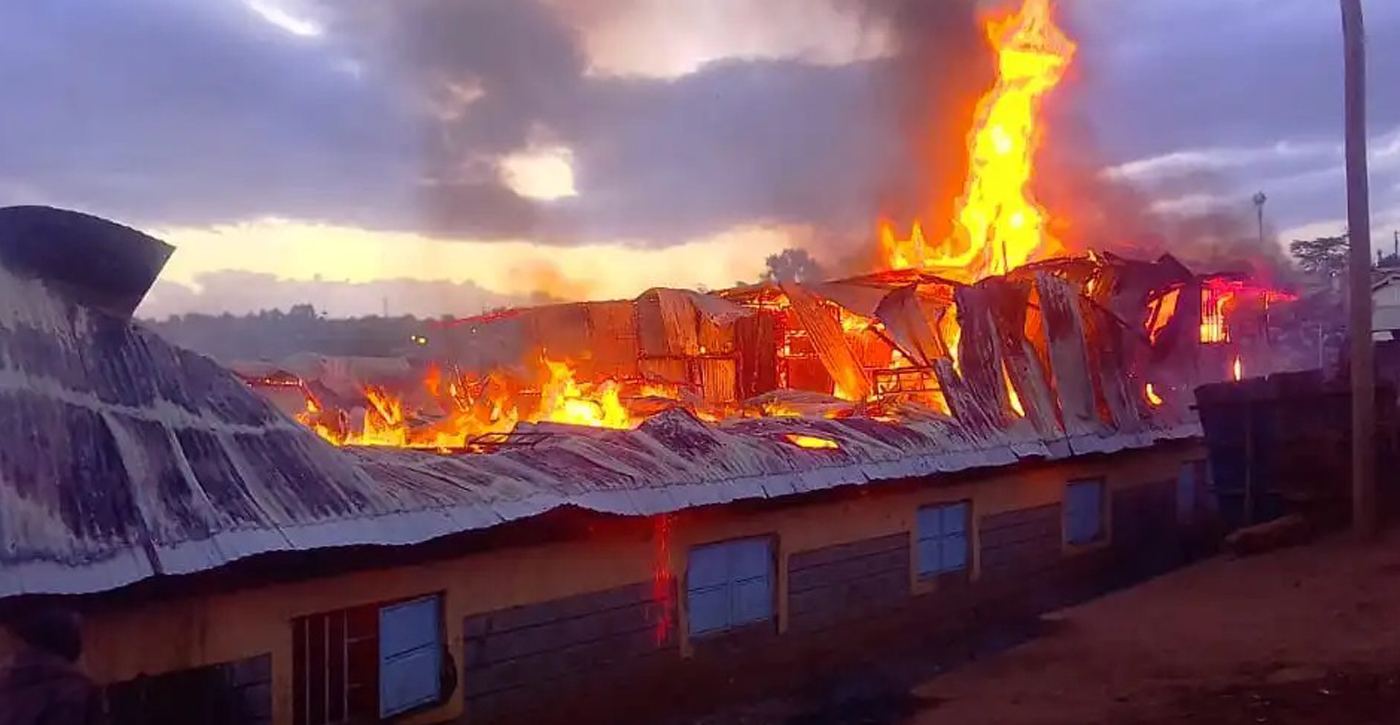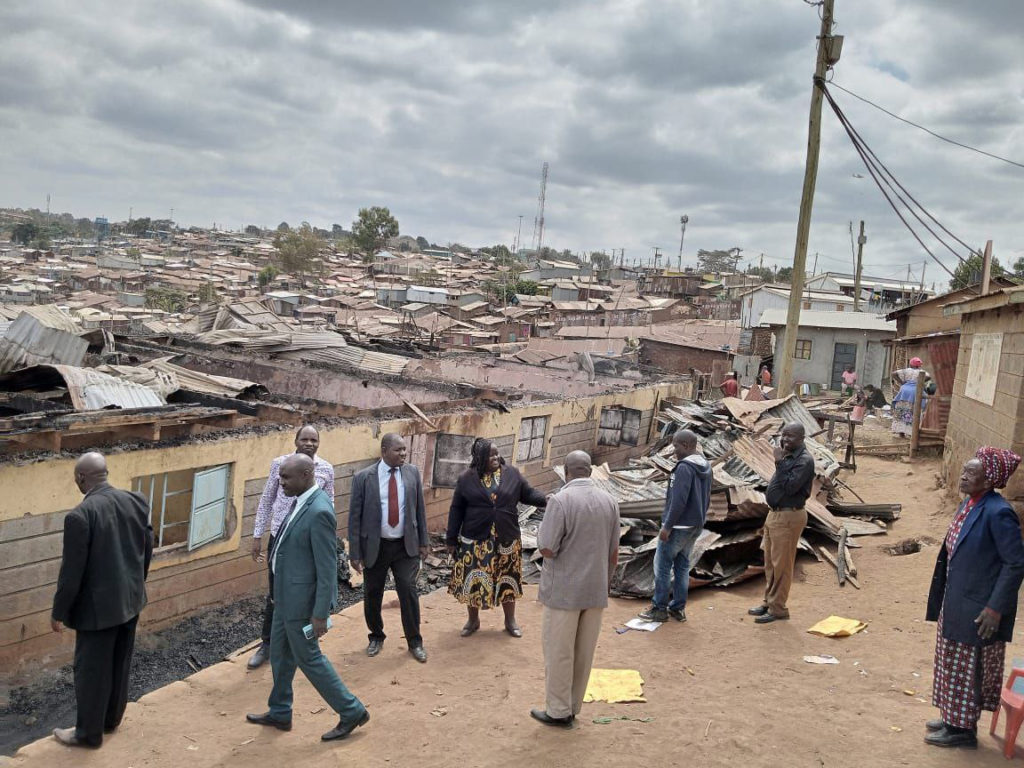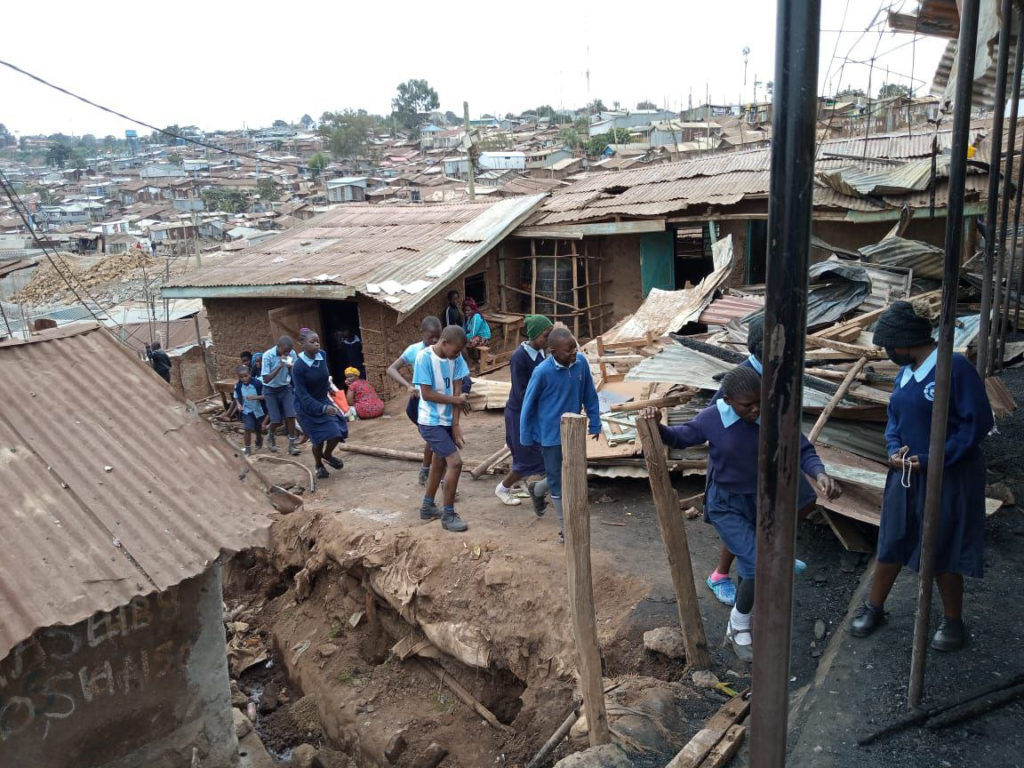On the evening of Sunday, July 24, a fire destroyed Lindi Friends School, run by Nairobi Yearly Meeting, in the Kibera slum in Nairobi, Kenya. The cause of the fire is unknown.
The fire did not spread beyond the school compound and no lives were lost. But the complete loss of the school building means both a halt to educational activities and to a feeding program for children in the Kibera slum. For many children connected to the Lindi School, the meal they received at the school was the only meal they had for the day.
Leaders of Nairobi Yearly Meeting and the clerk of Friends Church Kenya examine the damage done, Monday, July 25.
The Kenyan government suspended all educational programs ahead of the national elections in Kenya, beginning August 1. This gave the Lindi School more time to implement an emergency response plan. The current plan is for two classes to be held on site in temporary classrooms, and other classes will meet at the Friends Church in Kibera. Students who are sitting for national exams will gather at the Friends School on Ngong Road. Schools were ordered to be re-opened the week of August 22.
Given that the fire destroyed all books, school supplies, kitchen equipment, and furnishings, Friends United Meeting (FUM) has released $9,000 from its Solidarity Fund to provide an immediate response. Friends who want to support this emergency response are invited to contribute to this fund.
The Lindi School was founded in 2005 as a joint project of Friends United Meeting and Nairobi Yearly Meeting. Operating under the care of Lindi Friends Church, one of several Quaker meetings in the Kibera slum, the Lindi School has developed into a ministry of community transformation.
John Muhanji, director of FUM’s African Ministries, describes the Kibera neighborhood as a humble community in which most residents either have low-paying manual jobs or are unemployed and struggling to survive. Most houses in Kibera are built using old iron sheets, wood, and mud walls with tin roofs, and access to clean water is a serious concern.
Lindi School students walking through the grounds the day after the fire.
As Quaker meetings have grown in Kibera, they have been able to bring both wealthy and disadvantaged people together with a common vision of community transformation. Muhanji attributes this to the Quaker emphasis on equality and simplicity, which forms a foundation for communities that engage the spiritual gifts of all members. Friends in Kibera have used education to reach young people who would not otherwise have any way into a classroom, to teach them to read and write and give them access to higher paying jobs as well as membership in a caring community.
8/31/22 update: A report from a structural engineer assured the board that the school walls were strong enough to hold a temporary roof and give shelter to the students. So the board had five classrooms covered with a white canvas tent with the remaining three classes housed in an adjacent mud house that was adjacent to the burnt building. All of the children are now hosted within the Lindi School, suspending the integration of the two candidate classes to Friends School—Ngong Road.






Comments on Friendsjournal.org may be used in the Forum of the print magazine and may be edited for length and clarity.